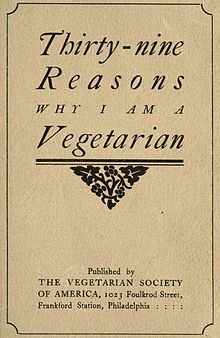
Vegetarianism is the practice of abstaining from the consumption of meat. It may also include abstaining from eating all by-products of animal slaughter.

Sylvester Graham was an American Presbyterian minister and dietary reformer known for his emphasis on vegetarianism, the temperance movement, and eating whole-grain bread. His preaching inspired the graham flour, graham bread, and graham cracker products. Graham is often referred to as the "Father of Vegetarianism" in the United States of America.
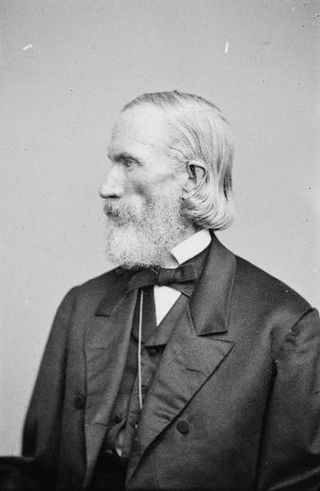
Orson Squire Fowler was an American phrenologist and lecturer. He also popularized the octagon house in the middle of the nineteenth century.
Christian vegetarianism is the practice of keeping to a vegetarian lifestyle for reasons connected to or derived from the Christian faith. The three primary reasons are spiritual, nutritional, and ethical. The ethical reasons may include a concern for God's creation, a concern for animal rights and welfare, or both. Likewise, Christian veganism is not using any animal products for reasons connected to or derived from the Christian faith.
World Vegetarian Day is observed annually around the planet on October 1. It is a day of celebration established by the North American Vegetarian Society in 1977 and endorsed by the International Vegetarian Union in 1978, "To promote the joy, compassion and life-enhancing possibilities of vegetarianism." It brings awareness to the ethical, environmental, health, and humanitarian benefits of a vegetarian lifestyle. World Vegetarian Day initiates the month of October as Vegetarian Awareness Month, which ends with November 1, World Vegan Day, as the end of that month of celebration. Vegetarian Awareness Month has been known variously as "Reverence for Life" month, "Month of Vegetarian Food", and more.

Charles Sherlock Fillmore was an American religious leader who founded Unity, a church within the New Thought movement, with his wife, Myrtle Page Fillmore, in 1889. He became known as an American mystic for his contributions to spiritual interpretations of Biblical Scripture. Fillmore promoted vegetarianism for three decades of his life.
Jewish vegetarianism is a commitment to vegetarianism that is connected to Judaism, Jewish ethics or Jewish identity. Jewish vegetarians often cite Jewish principles regarding animal welfare, environmental ethics, moral character, and health as reasons for adopting a vegetarian or vegan diet.

A Vindication of Natural Diet is an 1813 book by Percy Bysshe Shelley on vegetarianism and animal rights. It was first written as part of the notes to Queen Mab, which was privately printed in 1813. Later in the same year the essay was separately published as a pamphlet.
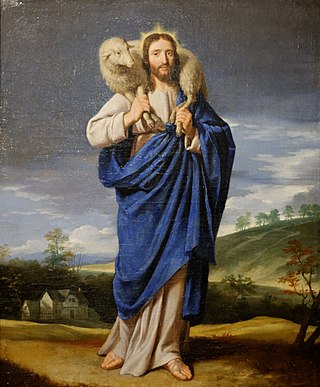
The relationship between Christianity and animal rights is complex, with different Christian communities coming to different conclusions about the status of animals. The topic is closely related to, but broader than, the practices of Christian vegetarians and the various Christian environmentalist movements.
The French Vegetarian Society was a vegetarian organization, formed in 1882 by G. Goyart. The aim of the Society was to "propagate vegetarianism and assert the benefits of any order it presents."

John Howard Moore was an American zoologist, philosopher, educator, humanitarian and socialist. He is considered to be an early, yet neglected, proponent of animal rights and ethical vegetarianism, and was a leading figure in the American humanitarian movement. Moore was a prolific writer, authoring numerous articles, books, essays, pamphlets on topics including animal rights, education, ethics, evolutionary biology, humanitarianism, socialism, temperance, utilitarianism and vegetarianism. He also lectured on many of these subjects and was widely regarded as a talented orator, earning the name the "silver tongue of Kansas" for his lectures on prohibition.

Josiah Oldfield was an English lawyer, physician and promoter of his own variant of fruitarianism which was virtually indistinguishable from lacto-ovo vegetarianism. He became a versatile author, a prolific writer of popular books on dietary and health topics.

Figs or Pigs? is an 1896 manual on vegetarianism and fruitarianism compiled by James Madison Allen, which contains observations from the author, as well as numerous quotations from eminent authors and authorities.
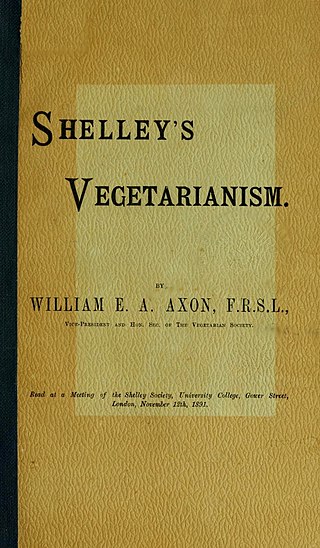
Shelley's Vegetarianism is a 1891 pamphlet on the vegetarianism of Percy Bysshe Shelley by William Axon, published by the Vegetarian Society. It is a printing of a lecture delivered by Axon before the Shelley Society, at University College in 1890.
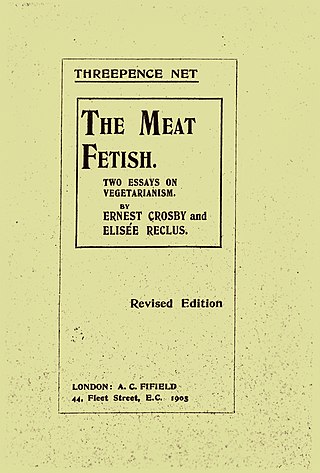
"The Meat Fetish" is a 1904 essay by Ernest Crosby on vegetarianism and animal rights. It was subsequently published as a pamphlet the following year, with an additional essay by Élisée Reclus, entitled The Meat Fetish: Two Essays on Vegetarianism.
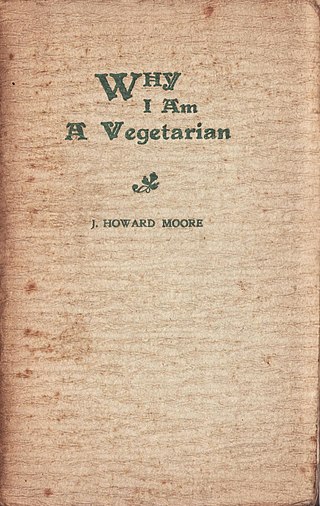
Why I Am a Vegetarian is an 1895 pamphlet based on an address delivered by J. Howard Moore before the Chicago Vegetarian Society. It was reprinted several times by the society and other publishers.

What is Vegetarianism? is a 1886 pamphlet written by John E. B. Mayor on vegetarianism.

Henry Stephen Clubb was a British-American Swedenborgian, abolitionist, chartist, journalist and author, who was state senator for Michigan, and founder and first President of the Vegetarian Society of America (VSA).
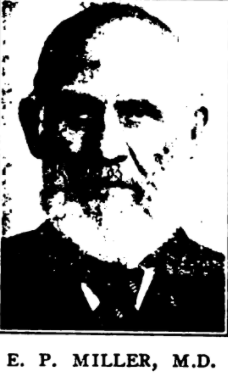
Eli Peck Miller, best known as E. P. Miller was an American physician, hydrotherapist, vegetarian and natural hygiene advocate.

Carrica Le Favre was an American physical culturist, dress reform advocate and vegetarianism activist. She founded the Chicago Vegetarian Society and the New York Vegetarian Society.
